Credit Cards
Best credit card offers
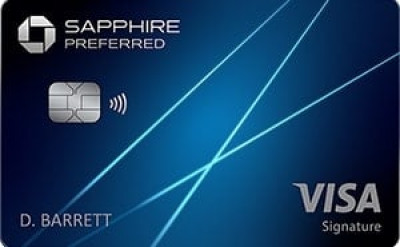
The Chase Sapphire Preferred® Card is an excellent choice, particularly when you transfer points from other Chase cards to it. It offers an exceptional sign-up bonus, especially considering its $95 annual fee.
Pros and cons
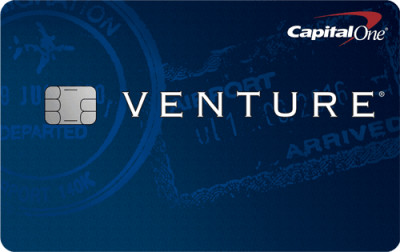
The Capital One Venture Rewards Credit Card is renowned for its straightforward rewards program and flexible redemption options, making it a top choice among travel credit cards.
Pros and cons
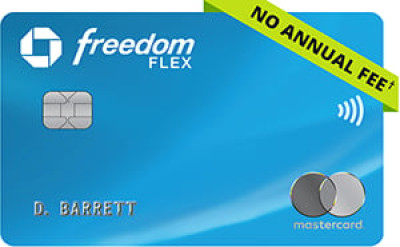
The Chase Freedom Flex℠, while technically a cash-back card, offers an impressive 5% rewards rate for travel booked through Chase. This feature makes it a versatile and valuable option for travelers.
Pros and cons
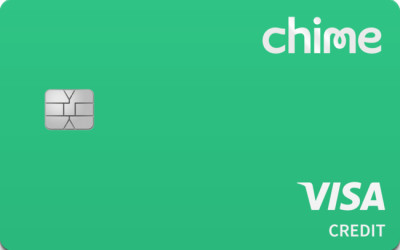
The Chime Credit Builder Visa® Credit Card doesn't require a minimum deposit or charge an annual fee, making it an accessible option for building credit. However, it's important to note that you must be a Chime banking customer to apply for this card.
Pros and cons
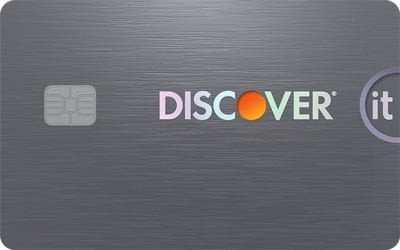
The Discover it® Secured Credit Card stands out as the top choice among secured credit cards due to its attractive rewards program, absence of an annual fee, and the potential for account upgrades.
Pros and cons
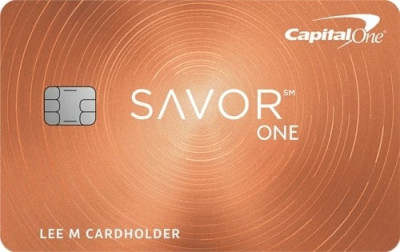
The Capital One SavorOne Student Cash Rewards Credit Card stands out among student cards with its combination of triple rewards in popular categories and a $0 annual fee.
Pros and cons
Comprehensive Guide to Choosing the Best Credit Card
Choosing the right kind of credit card product from among so many other products in the marketplace can be a somewhat demanding job. Our team came up with this guide in an attempt to uncomplicate the process for you and arm you with the information you need to lay an informed decision finally.
Let's go through the ins and outs of credit cards and sift through the options that would best suit your financial needs.
Understanding Credit Cards
In simple terms, a credit card is a financial tool issued by banks or any other authorized financial institution. It provides funds to purchase various goods and services up to a specific limit of the credit card. You can use your credit building credit cards, and most of the time, you will be rewarded for necessary use with cashback or holiday rewards.
Types of Credit Cards
There are several types of these cards available to suit different needs:
- Cash Back Credit Cards: offer points or cash back on purchases, making them perfect for customers who seek rewards on their daily expenditures.
- Travel Reward Credit Cards: give miles or points for air travel and accommodation expenses, often including additional services like travel insurance or access to airport lounges.
- Balance Transfer Credit Cards: allow you to transfer outstanding debt from a high-interest card to a low-interest card, making them great for managing and paying off high-interest credit card debt more affordably.
- Student Credit Cards: designed for young adults starting to establish credit, often featuring lower credit limits and reward schemes suitable for students.
- Credit Cards for Bad Credit Score: support the rebuilding of a low credit score, may have higher interest rates, and could include a security deposit.
Features to Consider When Choosing a Credit Card
Here, the following features should be considered before opting for a credit card:
| Interest Rates | These are interest rates on credit cards that tell you what you have to pay on the balances you carry from one month to another. |
| Annual Fees | These may add up with all the other expenses you would be having. |
| 0% Interest Credit Cards | On balance transfers or purchases. |
| Incentive Programs | Cash back, points, or miles. |
| Credit Limits | The maximum amount one can borrow. |
Summary:
- No Annual Fee Credit Cards: Best of use if you don't want to pay any extra fee.
Here are some of those features, giving a sneak peek to help determine the best credit card.
How to Compare Credit Card Offers
Compare different issuer offers to find the best credit card for you. Based on our analysis, here’s a step-by-step guide to help you make an informed decision:
- Interest-free options: Look at interest-free credit cards for balance transfers or purchases.
- Annual fees: Compare the yearly fee associated with the cards to understand the overall cost of maintaining the card.
- Rewards programs: Compare the points or miles to see which one might have the best return in cash back.
- Introductory offers: Shopping around for introductory offers, there should be features which include 0% APR for an introductory period.
- Comparing tools: Use our site to compare credit cards side-by-side with many other products.
- Balance transfer cards: Have in mind balance transfer credit cards if you are, regrettably, in an indebtedness situation.
- Personal impact: One should consider his spending habits and financial goals in finding the most appropriate card. You will thus be able to compare the offers and find the card that has the benefits and terms that best fit your situation.
Top Credit Cards for 2024
With so many options, these cards come into the market every year, which is quite confusing. Here are a few of the best credit cards 2024, and we are sure they will help you meet a perfect match for your needs. There are perfect cards out there for whether you need those that offer travel rewards, are looking for cash back, come without the annual fees attached, or are a rebuild card looking to reinvent a credit history that is damaged. Let's look at some of the best credit cards categorized.
Best Travel Rewards Credit Cards
The best credit card for frequent travelers offers rewards like redeemable points or miles for flights, hotels, and other travel needs. The best travel credit cards provide benefits such as airport lounge access and travel insurance. Look for cards with attractive sign-up bonuses and favorable redemption rates. Choose a card that matches your travel habits to maximize rewards.
Best Cash Back Credit Cards
Many popular cash back credit cards return a part of the money you spend in cash. As such a card, it makes all the purchases that everybody does in everyday life very rewarding. Hence, of course, the best cash back credit cards would allow high rewards rates even in categories like groceries, gas, and dining out. We suggest you find out about the reward system and earning cap on rewards to decide which card will best match your spending nature.
Best No Annual Fee Credit Cards
Cards with no annual fees will save you more money compared to any card that adds a special fee for an individual just for having and maintaining that card in particular throughout the year. A leading no-annual fee top rewards credit cards are the 0% APR credit cards, hailing on the top given rewards.
Best Student Credit Cards
The best student credit cards come with rewards programs, reasonable fee structures, and management tools that assist you in building your credit history. Most will have educational resources regarding managing credit and a clear path toward upgrading to a regular card once you graduate. Make sure to get the best reward credit cards for responsible use.
Best Credit Cards for Bad Credit
Specifically designed credit cards for bad credit are a way to build a credit score. They can be acquired, but with high interest and small spending limits. It can always be one of those things that are a stepping stone to better credit ratings, perhaps even with a security deposit attached. Through responsible use, this would tend to have the effect of improving credit scores over time. Be on the lookout for guaranteed approval credit cards for bad credit to get that higher chance of acceptance.
Apply for a Credit Card
A credit card application is highly important in enabling you to handle your finances as you build your credit history. Be aware of everything you will be required to do for your application, which will help you go through the process without a hitch. Here is what you should pay attention to for the requirements, the application process, and what comes after approval.
Credit Score Requirements
The approval ratings for cards vary:
- Credit Scores are High Enough: 0% credit cards, and the ones that are used are usually demanded in good-to-excellent credit score. These cards would naturally have the best features attached to them and a meager interest rate.
- Crazy Low Credit Qualifications: There are cards available for poor credit and credit-building credit cards for low score holders. Therefore, these cards are marketed for credit repair or building.
Knowing what is in your credit report allows you to apply for cards that suit you best and can, in the process, save you from unnecessary hard inquiries that might appear in your credit report.
The Application Process
Applying for most cards involves several steps:
| Apply | Submit an application to the card issuer. This can usually be done online. |
| Required Information | This shall include personal name, address, personal income, and social security number. |
| Credit Check | The issuer can check your eligibility through your credit report. |
| Instant Approval | Some offer instant approval, provided you meet the criteria that need to be fulfilled. |
| Terms Review | Make sure you go through the terms of the card even before you apply for it. You would want to know what exactly the card offers, and then what charges go with this card. |
Approval and Activation
It will be sent by mail if the application is approved. Activation procedures should follow and could include the calling of some specific phone number, amongst other things, available issued by your issuer. When the card has been activated, that's when you can then use it to make purchases. Do use it wisely to build your credit score and to make the most out of any given rewards programs in place.
And don't worry if you are not approved for a credit card; correct any errors on your credit report and work on raising your credit score. For more detailed information, you may want to see MoneyHelper.
Managing Your Credit Card
Proper credit card management means financial health and helps you construct your credit history. The appropriate use and management of your credit card, along with dealing with unexpected problems that may arise, will maximize the benefits of your card and minimize the potential problems.
Using Your Credit Card Responsibly
Apart from staying away from debt, with a credit card, one has to be wise to keep a good credit score. Make sure that you can pay the amount of the bill in full every month and that it falls within the grace period; then, no interest will have to be paid. Keep a record of expenditure and keep it within the limit.
Paying Off Your Balance
The best way to avoid the interest and debts associated with cards is to pay off the balance in full every month. If you have to carry some balance, pay off high-interest debt first. Balance transfers credit cards will be carried out on cards to help in management of the debt, moving it to a card with a lower interest rate. You should set it up to remain free of late fees by making automatic payments.
Monitoring Your Account
Routine account checking on your credit card account keeps you in the know in case of errors or fraudulent acts on your account. Most cards allow you to access your account online and through mobile applications, which makes your balance and transactions entirely traceable. You also have to set alerts for the due dates and activities that sound suspicious.
Handling Credit Card Issues
In case your credit card gives you a problem:
- Prompt Contact: Immediately contact your issuer when you notice unauthorized charges and billing errors. Most issuers have specifically trained customer service representatives to respond to inquiries from consumers.
- Familiarize Yourself with Your Rights: Have an idea of what's expected of you as a cardholder. That will be the maximum of no liability in case of fraud.
- Ongoing Problems: If this continues to be the case, then you may prefer to take another card that suits you more.
If you encounter issues with your credit card, it could be beneficial to seek guidance from resources like Citizens Advice, which provides free advice on handling unauthorized charges, billing errors, and other common credit card problems.
Pros and cons
Pros
- Convenience: Easy to use for everyday purchases
- Rewards: Earn cashback, points, or miles on purchases
- Travel Benefits: Travel insurance, airport lounge access, and rewards for travel expenses
- Budget Management: Tools and alerts for tracking spending and managing finances
Cons
- High-Interest Rates: Can lead to significant debt if balances are not paid in full
- Annual Fees: Some cards charge yearly fees, adding to the cost
- Debt Risk: Easy to overspend and accumulate debt
FAQ
What is a credit card?
A credit card is a card that one uses to borrow funds repayable back from a bank or any other financial institution for the purpose of purchasing any goods or services.
How do these credit card rewards programs work?
Most of the rewards programs through the different credit cards include point rewards, miles, or cash returns earned based on the amount spent with the card, which can further be redeemed for travel or merchandise.
What is the APR?
APR means Annual Percentage Rate. The rate is the interest charge on the outstanding balance on a credit account, expressed as an annual rate.
What is the difference between a secured credit card and an unsecured credit card?
What is the difference between a secured credit card and an unsecured credit card?
Can I get a credit card with bad credit?
Yes, one can get a bad credit credit card specifically designed to help improve their bad credit.
How do I build good credit with a credit card?
You do so by being a responsible card user, always paying on time, keeping your balance low, and not maxing out your credit limit.
What fees should I be aware of with credit cards?
Examples of standard fees include over-to-draw fees, late payment fees, balance transfer fees, cash advance fees, and so on.
How do I select the right credit card?
Take into account your spending habits, credit score, and objective of finance. Use your card wisely and determine which features, fees, and rewards suit you best.
What is a balance transfer, and even more closely, how does it work?
A balance transfer means transferring one's debt from one credit card to another. Ideally, nowadays, the transfer is made to a card with a lower interest rates on credit cards, so the concept of "balance transfer" is used to save on credit card interest charges.
How do I apply for a credit card?
You can apply for a credit card either online or physically. Applications would require the customers' personal and financial details. The card issuer shall evaluate the application and decide whether it can accept the addition process in the issuance of the credit card.
What if I lost my money or a card?
Losses should immediately be reported to ensure the loss does not lead to unauthorized use and request a card replacement.
What is a credit limit?
A credit limit is the highest amount you can borrow using your credit card.
How can I avoid paying interest on my credit card?
Avoid interest charges by paying the complete or total due on or before the payment due date.
What are cash advances, and how do they work?
This is another way of borrowing money using your credit card, more often than not, a kind of advance loan that comes with high interest, punishing those who borrow, and is staffed with other extra charges.
What is meant by the grace period?
The grace period is the maximum number of days the company will allow to elapse from closing your billing cycle to your payment day. In general, you can pay off what you have charged before interest on the amount begins.